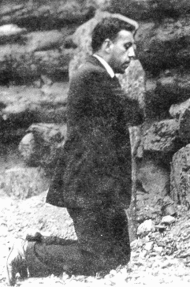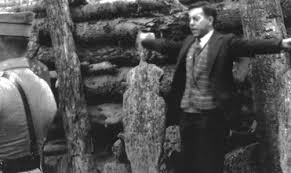November 23rd is another of those triptych saint days, with three on offer to lift our spirits as we approach Christ the King, Advent and the beginning of a new liturgical year.
Saint Clement of Rome (+99 A.D.) was either the first, second or third Pope after Saint Peter, depending on how they are counted, whose early testimony is most accurate and whether ‘Cletus’ and ‘Anacletus’ are the same person. One way or the other, Clement was likely ordained by the great fisherman-turned-fisher-of-men himself. Clement given strong evidence to Cardinal Newman’s famous dictum that to delve into history is to cease to be Protestant. Clement’s letters to the people at Corinth – read at Mass in those nascent days although never adopted as canonical Scripture – signify that the Church Christ founded was ‘Catholic’ from the beginning, with a Pope, who had, and knew he had, full papal authority and primacy, bishops, priests, the Mass, the Eucharist and all the other sacraments.
Under Emperor Trajan, Clement was exiled to the mines at Chersonesus on the Crimean peninsula, and, after miraculously providing for his fellow prisoners with a spring of water, was himself thrown into the water of the Black Sea tied to an anchor.
Saint Columban (+615) was an Irish monk – not to be confused with the earlier Columba or Columbkille (+597) who set up the abbey at Iona – who like the latter, travelled over the sea from Ireland, to Scotland, but Columban continued down into France and Italy, in which latter regions he spent the remainder of his life, setting up monasteries, the most famous being those at Luxeiul and Bobbio. As he journeyed, he preached the faith, rebuking and converting kings and queens, refuting the still-remaining traces of Arianism and Nestorianism, supported in his vast and wide-ranging apostolic work with a life of deep prayer and discipline.
Not insignificantly, Columban also testifies to the enduring Tradition of Catholicism, writing to Pope Boniface IV in the midst of one of his controversies:
We Irish, though dwelling at the far ends of the earth, are all disciples of Saint Peter and Saint Paul … we are bound to the Chair of Peter, and although Rome is great and renowned, through that Chair alone is she looked on as great and illustrious among us … On account of the two Apostles of Christ, you are almost celestial, and Rome is the head of the whole world, and of the Churches.
And the third saint also testifies to fidelity to all that ‘Rome’ stands for: Blessed Miguel Pro was a charismatic, joyful young Jesuit during the savage persecutions in Mexico in the early 20th century, put to death by firing squad on this day in 1927 under orders of president Plutarco Elias Calles, on false charges of plotting to assassinate former president Alvaro Obregon, both of them vehement anti-Catholics.
As everyone knew, Father Miguel, for all their own desire to destroy him, desired only their conversion and their good.
From his earliest years, he was known for his high intelligence, his sparkling wit, yet was never coarse nor mean, with a deep spirituality. There was the ‘playful Pro’, full of joy and laughter, and the ‘prayerful Pro’, spending long hours in the chapel.
After studies and formation with the Jesuit Order – in exile in California, since such education was illegal in Mexico – went back to his native country in 1926, spending a year in fruitful apostolic work, evading capture with disguise and ingenuity, until his arrest in 1927, after which he as executed without evidence and without trial. He asked only to spend some time in prayer, and the picture of him kneeling in deep reflection is profound. As he stood, with arms outstretched in cruciform waiting to die, he prayed: May God have mercy on you! May God bless you! Lord, Thou knowest that I am innocent! With all my heart I forgive my enemies…

He then cried out Viva Cristo Rey! as the bullets smashed into his body. Tens of thousands lined up to see a glimpse of his body at his funeral, which filled the tyrant Calles with dread, like Antiochus of old. The witness of the saints is, in the end, invincible.
At his beatification as a martyr on September 25, 1988, Pope John Paul had this to say about Miguel:
Neither suffering nor serious illness, nor the exhausting ministerial activity, frequently carried out in difficult and dangerous circumstances, could stifle the radiating and contagious joy which he brought to his life for Christ and which nothing could take away. Indeed, the deepest root of self-sacrificing surrender for the lowly was his passionate love for Jesus Christ and his ardent desire to be conformed to him, even unto death
And so must we all – be conformed to Christ, unto death – for only so we may one day truly live.












